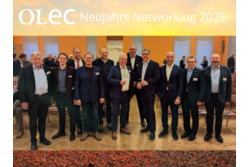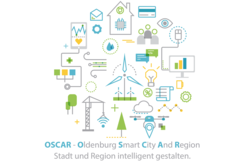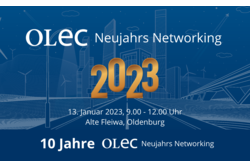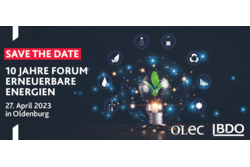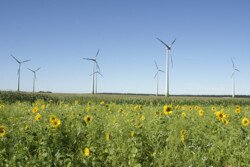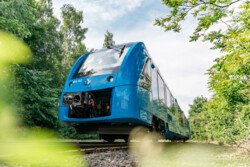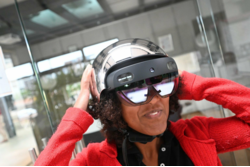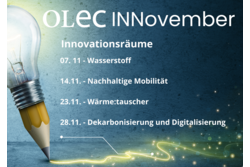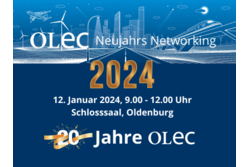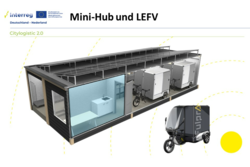
On 22 September 2023, the kick-off meeting of the Interreg project Citylogistic 2.0 took place in Oldenburg. The project aims to develop a new concept to reduce the increasing emissions caused by logistics in inner cities. The aim is to develop an innovative, intelligent and sustainable distribution system consisting of an energetically self-sufficient, mobile mini-hub and a vehicle developed for this purpose (Light Electric Freight Vehicle - LEFV), which is operated on the basis of the renewable energy provided by the mini-hub.
Direct delivery by truck or (diesel) van from distribution centres to the customer's address is to be replaced by climate-neutral delivery via a mini-hub. Roll containers are used for transport: trucks and delivery vans bring roll containers to the mini-hub, and the LEFVs deliver the shipments from the mini-hub to the customer. This reduces high-emission delivery traffic in residential areas and city centres.
The holistic concept to be developed here is characterised by the special combination of an energy-autonomous mini-hub, a newly developed e-vehicle and the communication networking and dialogue between the hub and the vehicle. The automatic communication between the mini-hub and the vehicle takes place not only in terms of logistics data, but also in the area of energy management. The vehicles communicate independently with the hub and send information about the charging status and, if necessary, the route. The hub reports when a charging point is free and what the forecast is in terms of charging time. The latter is determined from the weather forecast (monitoring system), among other things.
Ten German and Dutch partners are working together across borders in the Citylogistic 2.0 project. Accompanied by the two clusters New Energy Coalition and Oldenburg Energy Cluster, a comprehensive knowledge and technology transfer is realised in the programme area and target group-oriented communication is ensured. Within the framework of the project, two operating and test phases lasting several months are planned in the partner cities of Groningen and Oldenburg. In Oldenburg, the new and innovative Helleheide neighbourhood on the former air base will serve as a test site. The project will run until 31 July 2027.
We are looking forward to the start and the joint work with our project partners:
New Energy Coalition, Fulpra, Rijksuniversiteit Groningen, Hanzehogeschool Groningen, Jade Hochschule, , Loohuis Installatiegroep B.V., Busmann Holzbau, Dynteq, ELECTRIC-SPECIAL Photronicsysteme GmbH
Associated partners: CITIPOST GmbH, Groene Rijders, Stadt Oldenburg, Metropolregion Nordwest
Translated with DeepL




